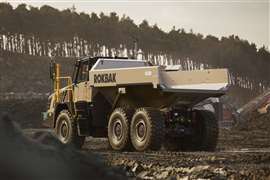Read this article in Français Deutsch Italiano Português Español
High demand prompts Dubai property developers to start in-house contractors
13 August 2025
 A general view of a construction site in Dubai, United Arab Emirates (Image: Reuters/Rula Rouhana)
A general view of a construction site in Dubai, United Arab Emirates (Image: Reuters/Rula Rouhana)
Major property developers in the United Arab Emirates are increasingly creating their own contracting businesses amid high demand for property.
The shift marks a move away from long-standing reliance on third-party contractors and reflects an effort to speed up delivery and improve cash flow. It also comes with potential downsides, industry observers note.
Emaar Properties – best known for the Burj Khalifa – has set up a new construction arm, Rukn Mirage, under its subsidiary Mirage, a company spokesperson confirmed to Reuters. Emaar joins Samana Developers, Ellington, and Azizi, all of which have launched in-house contracting units within the past two years.
Arada, co-founded by Saudi Prince Khaled bin Alwaleed bin Talal Al Saud, told Reuters it had acquired a stake in an Australian contractor earlier this year and plans to integrate the business into its UAE operations by 2027.
Dubai real estate prices have risen 70% in the four years to December 2024, alongside a government plan to double the emirate’s population to 7.8 million by 2040. Industry data shows property launches rose 83% in 2024, though completions fell 23%.
Rapid growth has driven an influx of workers, many from South Asia, while turnover among expatriate staff remains high.
Competition for external contractors has intensified. Samana Developers originally intended to allocate only 20% of work to its contracting arm when it launched in September, but now handles up to 90% of new projects internally, chief executive Imran Farooq said. Bids from outside firms have dropped sharply, from as many as 30 per project in previous years to just two or three.
Emaar is taking a mixed approach, with some developments – such as a recently announced residential scheme – handled by Rukn Mirage, while others remain outsourced, founder and managing director Mohamed Alabbar said.
Owning the entire development chain – from site purchase to handover – offers greater certainty, aligning with the UAE’s drive for self-reliance in key sectors. However, taking construction in-house increases operational complexity and may leave companies exposed in a downturn, said Gordon Rodger, managing partner at consultancy Stonehaven.
STAY CONNECTED


Receive the information you need when you need it through our world-leading magazines, newsletters and daily briefings.
CONNECT WITH THE TEAM











